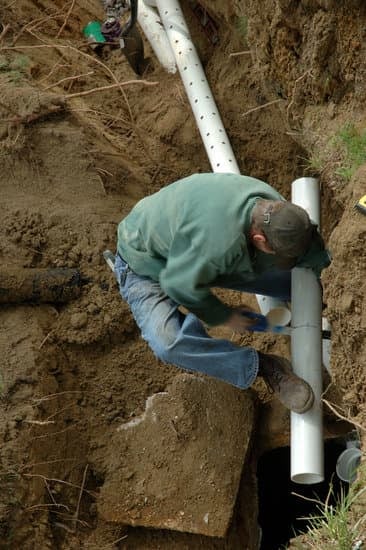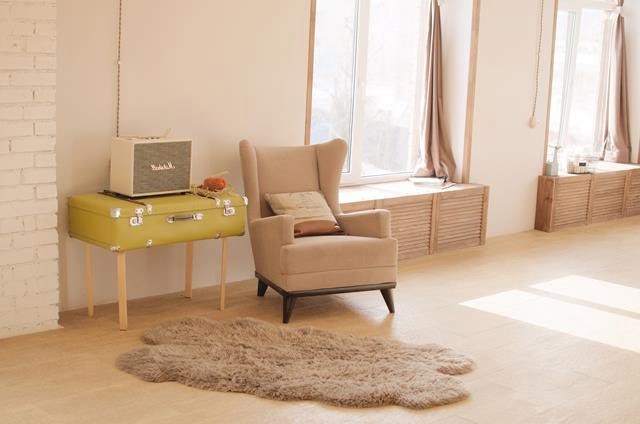Looking to spruce up your home with some much-needed renovations? If so, you may be wondering what loan is best for home improvements. Investing in home improvement projects can not only enhance the overall appeal and functionality of your space but also add value to your property.
However, finding the right loan to finance these projects is crucial for ensuring that the process is smooth and affordable. In this article, we will explore the different types of loans available for home improvements, including personal loans, home equity loans, and government-backed options like 203(k) renovation loans. We’ll discuss the benefits of each type of loan and provide tips on how to choose the best option for your specific needs.
When it comes to financing home improvement projects, there are a variety of loan options available to homeowners. Whether you’re considering a kitchen remodel or a new bathroom addition, finding the right loan can make all the difference in bringing your vision to life. By exploring the different types of loans and understanding their eligibility criteria and interest rates, you can make an informed decision about which option is best suited for your needs.
In this article, we will delve into the details of personal loans for home improvements, including their advantages and disadvantages. We will also explore how home equity loans work and discuss their potential risks and benefits in financing renovation projects.
Additionally, we will highlight government-backed loan options such as FHA 203(k) renovation loans and explain the application process and eligibility requirements for these types of loans. Ultimately, our goal is to provide you with valuable insights on choosing the right loan for your specific home improvement needs while offering practical tips for securing a favorable financing solution.
Types of Loans for Home Improvements
When it comes to financing home improvement projects, there are several types of loans available to homeowners. Each type of loan has its own eligibility criteria, interest rates, and benefits, so it’s important to understand the options before making a decision on which loan is best for home improvements. Let’s explore the different types of loans commonly used for home renovations.
One common option for financing home improvements is a personal loan. Personal loans can be obtained from banks, credit unions, or online lenders and usually do not require any collateral. They offer flexibility in terms of usage and can be used for various home improvement projects. However, personal loans may have higher interest rates compared to other types of loans and may have shorter repayment terms.
Another popular option for funding home renovations is a home equity loan. This type of loan allows homeowners to borrow against the equity in their homes and typically offers lower interest rates compared to personal loans. Home equity loans are ideal for larger renovation projects that require significant funding, but they do pose a risk to the homeowner’s property if they are unable to repay the loan.
Government-backed loans such as FHA 203(k) renovation loans are also available for financing home improvements. These types of loans are insured by the government and offer competitive interest rates and flexible eligibility requirements. They are particularly beneficial for homeowners who may not qualify for traditional bank loans or have limited funds for renovations.
Understanding the differences between these various loan options will help homeowners make an informed decision about what loan is best for home improvements based on their specific needs and financial situation. It’s important to consider factors such as interest rates, repayment terms, eligibility requirements, and potential risks before committing to a particular type of loan for home renovations.
Personal Loans for Home Improvements
When considering home improvement projects, one of the key questions homeowners often ask themselves is, “What loan is best for home improvements?” Personal loans are a popular option for financing these projects due to their flexibility and accessibility. Personal loans can be used for various purposes, including home renovations, and they offer advantages and disadvantages that should be carefully considered.
Advantages of using a personal loan for home improvements include the ability to access funds quickly and without the need for collateral. These unsecured loans typically have a fixed interest rate, making it easier to budget for monthly payments. Additionally, personal loans may have more lenient eligibility criteria compared to other types of loans, making them an attractive option for homeowners who may not meet the requirements for a home equity loan.
However, it’s important to carefully consider the potential drawbacks of using a personal loan for home improvements. Interest rates on personal loans can be higher than those on home equity loans or government-backed renovation loans. Borrowers should also keep in mind that personal loans are usually offered in smaller amounts compared to other loan options, which may not be sufficient for large-scale renovation projects.
When seeking a personal loan for home improvements, it’s essential to shop around and compare offers from different lenders. To qualify for the best rates and terms, borrowers should focus on improving their credit score before applying.
This can be achieved by paying bills on time, reducing outstanding debt, and addressing any errors in credit reports. By taking proactive steps to strengthen their financial standing, homeowners can increase their chances of securing a favorable personal loan for their home improvement needs.
Home Equity Loans for Home Improvements
Home equity loans can be a favorable option for homeowners looking to finance their home improvement projects. These loans allow individuals to borrow against the equity in their homes, offering attractive interest rates and potential tax benefits. Here are some key points to consider when exploring the use of home equity loans for home improvements:
- How Home Equity Loans Work: Home equity loans involve borrowing a lump sum of money based on the value of your home, minus any outstanding mortgage balance. This type of loan typically has a fixed interest rate and a set repayment term.
- Risks and Benefits: One of the main advantages of using a home equity loan for home improvements is the ability to access a large amount of funds at a relatively low interest rate. Additionally, the interest paid on these loans may be tax-deductible. However, it’s important to note that defaulting on a home equity loan can result in the loss of your home through foreclosure.
- Considerations for Using Home Equity Loans: Before opting for a home equity loan, homeowners should carefully assess their ability to repay the borrowed amount. Additionally, individuals should consider whether the value added to their property through renovations will outweigh the potential risks associated with using a home equity loan.
Ultimately, deciding whether to use a home equity loan for home improvements depends on individual financial circumstances and project requirements. It is crucial for homeowners to carefully evaluate all available options and compare them with respect to interest rates, repayment terms, and potential risks. By doing so, individuals can make informed decisions about choosing the most suitable loan for their specific needs.
When considering what loan is best for home improvements, it’s important to weigh all available options and choose a solution that aligns with one’s financial goals and objectives. As such, homeowners may benefit from seeking guidance from financial advisors or mortgage professionals who can provide personalized recommendations based on their unique situations.
By conducting thorough research and evaluating different loan types against specific project requirements, individuals can ensure they secure an optimal financing solution for their home improvement endeavors.
Government-Backed Loans for Home Improvements
When it comes to financing home improvement projects, government-backed loans can be a valuable option for homeowners. These types of loans are typically more accessible and offer favorable terms, making them an attractive choice for those looking to renovate their homes. Here are some of the popular government-backed loan options available for home improvements:
- FHA 203(k) Renovation Loans: FHA (Federal Housing Administration) offers 203(k) renovation loans that allow homeowners to finance both the purchase of a home and the cost of renovations into a single mortgage. This type of loan is ideal for those looking to buy fixer-upper properties and transform them into their dream homes.
- VA Home Improvement Loans: The Department of Veterans Affairs (VA) offers home improvement loans to eligible veterans, active-duty service members, and certain spouses. These loans can be used to make necessary repairs or improvements to the primary residence.
Government-backed loans have several advantages, including lower down payments, competitive interest rates, and flexible eligibility criteria. Additionally, these loans often come with safeguards and protections for borrowers.
Applying for a government-backed loan for home improvements typically involves meeting certain requirements such as credit score thresholds, income qualifications, and property appraisal processes. It’s important for homeowners to understand the specific criteria associated with each type of loan and ensure they meet the eligibility standards before applying.
Ultimately, when considering what loan is best for home improvements, exploring government-backed options can provide significant benefits in terms of affordability and accessibility. By weighing the pros and cons of each loan type and understanding the application process, homeowners can make informed decisions about financing their home improvement projects.
Choosing the Right Loan for Your Needs
When it comes to home improvement projects, finding the right loan is crucial to ensure that the renovation work is completed successfully without putting a strain on your finances. With a variety of loan options available, it can be overwhelming to determine which one will best suit your needs. It’s important to consider factors such as eligibility criteria, interest rates, and repayment terms when selecting a loan for home improvements.
Assessing Your Home Improvement Needs
Before selecting a loan for your home improvement project, it’s essential to assess the scope of the renovation work needed. Whether you’re planning a major overhaul or smaller upgrades, understanding the financial requirements of the project will help you determine how much funding you’ll need. This assessment will also guide you in choosing a loan that aligns with your specific renovation plans.
Comparing Loan Options
Once you’ve determined the financial needs of your home improvement project, it’s time to compare different loan options available. Personal loans offer flexibility and quick access to funds, while home equity loans provide larger amounts with lower interest rates but require collateral. Government-backed loans like FHA 203(k) renovation loans may be suitable for larger scale renovations and offer favorable terms for eligible borrowers.
Considering Repayment Terms and Interest Rates
In addition to comparing eligibility criteria and funding limits, it’s crucial to consider the repayment terms and interest rates associated with each type of loan. Personal loans typically come with fixed rates and shorter repayment periods, while home equity loans may have variable rates but longer repayment terms. Government-backed loans often offer competitive interest rates and flexible repayment options tailored for home improvement projects.
By carefully considering these factors and assessing your specific renovation needs, you can make an informed decision about which loan is best suited for your home improvement project. This thoughtful approach will ensure that you secure financing that aligns with your budget and allows you to complete your renovation work with ease and financial stability.
Tips for Securing a Home Improvement Loan
When it comes to securing a home improvement loan, it’s essential to carefully consider your options and choose the best financing solution for your specific project. One of the most important factors to consider is the interest rate, as this will impact the overall cost of the loan. Additionally, you should evaluate the eligibility requirements for each type of loan and determine which one aligns with your financial situation and credit score.
If you’re wondering what loan is best for home improvements, it’s important to weigh the advantages and disadvantages of personal loans, home equity loans, and government-backed loans. Personal loans are unsecured, meaning they don’t require collateral, but they often come with higher interest rates.
On the other hand, home equity loans offer lower interest rates but leverage your home as collateral. Government-backed loans such as FHA 203(k) renovation loans have specific eligibility criteria but may be more accessible for borrowers with lower credit scores.
Before applying for a home improvement loan, take some time to review your credit report and address any areas that may be negatively impacting your score. This can help improve your chances of securing a favorable loan with lower interest rates.
It’s also advisable to compare offers from multiple lenders to ensure you’re getting the most competitive terms for your loan. By carefully evaluating different options and considering your financial standing, you can make an informed decision on which loan is best suited for your home improvement needs.
| Loan Type | Interest Rate Range | Collateral Needed |
|---|---|---|
| Personal Loan | 6% – 36% | No |
| Home Equity Loan | 3% – 10% | Yes (home equity) |
| FHA 203(k) Renovation Loan | d>No (FHA-backed) |
By understanding these key aspects along with comparing different options; individuals can make informed decisions ensuring they obtain the most suitable home improvement load available on market which aligns with their financial conditions and requirements”.
Conclusion
In conclusion, it is evident that there are various loan options available for funding home improvement projects, each with its own set of advantages and disadvantages. From personal loans to home equity loans and government-backed options like FHA 203(k) renovation loans, homeowners have a range of choices to consider. The key to selecting the best loan for home improvements lies in carefully assessing individual needs, financial circumstances, and eligibility criteria.
When determining what loan is best for home improvements, it’s essential to weigh the interest rates, repayment terms, and potential risks associated with each option. Personal loans may offer flexibility, while home equity loans provide the advantage of leveraging property value. Government-backed loans, on the other hand, come with specific requirements but can be beneficial for those seeking to finance extensive renovation projects.
Ultimately, homeowners are encouraged to conduct thorough research and seek professional guidance if needed to make informed decisions about financing their home improvement endeavors. With careful consideration and planning, individuals can secure the most suitable loan for their specific needs and work towards enhancing the value and comfort of their homes.
Frequently Asked Questions
Which Loan Is Best for Home Renovation?
The best loan for home renovation is typically a home equity loan or a home equity line of credit (HELOC). These types of loans allow homeowners to borrow against the equity in their homes, providing funds for renovations.
What Type of Loan Is Best for Home Addition?
When it comes to adding onto your home, a construction loan is often the best option. This type of loan is specifically designed for financing the construction of a new addition to your existing home.
What Is a Home Improvement Loan Called?
A home improvement loan is often referred to as a personal loan or a home renovation loan. These loans are unsecured and can be used for various home improvement projects, making them a popular choice among homeowners looking to upgrade their properties.

I’m thrilled to have you here as a part of the Remodeling Top community. This is where my journey as an architect and remodeling enthusiast intersects with your passion for transforming houses into dream homes.





